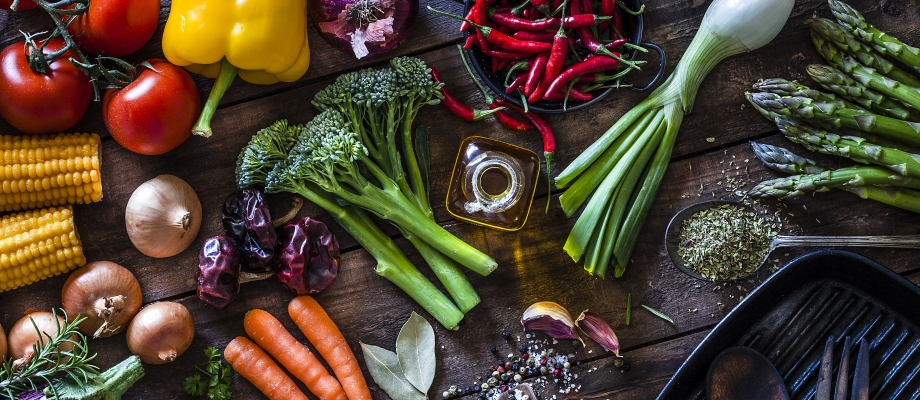The future of food surplus, food waste, and new models of social eating

A symposium bringing together stakeholders across business and society to discuss food waste success stories — and map out the possibility of future collaboration across sectors.
Food waste is a pernicious social problem. In the UK for instance, the largest contribution to food waste comes from homes: 8.3 million tonnes per year, which costs consumers £12 billion and contributes to approximately 3% of UK greenhouse gas emissions (Quested et al., 2011).
Yet despite the enormous amount of food binned daily by business and society alike food poverty remains a chronic issue. Charitable foodbank use in the UK has risen rapidly over the past two decades (Lansley & Mack 2015). The Trussell Trust alone distributed 1,182,954 instances of emergency 3-day food supplies between April 2016 and March 2017 (Trussell Trust, 2017).
This staggering increase is not merely from people experiencing financial hardship due to a lack of employment. The growing number of people experiencing ‘in-work’ poverty has increased foodbank use as salaries fail to cover basic expenditure. But many people are still reluctant to visit foodbanks, with previous research indicating that the experience is often coupled with negative emotions such as guilt, shame, embarrassment or a feeling of indebtedness (Garthwaite, 2016).
The growing food crisis in the UK has prompted cross-party political attention. Indeed, a recent report entitled ‘Feeding Britain, prepared by an All-Party Parliamentary Inquiry into Hunger in the United Kingdom, acknowledged that there was a significant number of hungry people and … the terrifying idea that hunger is here to stay unless all of us take our responses on to a new and totally different level” (APPIHUK 2014, p. 8)’
If these issues are ever to be eradicated consumers, businesses, charities, and government will all need to play a part in creating an alternative food future. The growing demand for alternative food provision has spawned many initiatives which reimagine how food is commoditised and distributed through supply chains. This reimagining is most apparent in supply chains with excessive food waste, particularly supermarkets with regular daily surpluses which can be repurposed. For instance, the UK organisation FareShare is responsible for collecting and distributing food surpluses to a wide variety of charity organisations such as ‘pay what you feel’ and ‘social eating’ cafes. According to Baron et al (2018, p.138) “this is a significant operation: In 2016, over 5,000 charities/ community groups received food from FareShare. Some 25 million meals were provided from the 12,000 tons of food which were processed”. These initiatives are part of a broader ‘feed people first’ movement which aims to guide the effective redirection of edible food surpluses to those citizens who need it.
This free inaugural symposium will bring stakeholders across business and society to discuss food waste success stories and map out the possibility of future collaboration across sectors. Keynote presentations will be given by leading thinkers from a range of companies, charities, government, and grassroots movements.
Call for abstracts
We welcome submissions of abstracts (1 page) from a variety of disciplinary backgrounds on topics including, but not limited to:
- The sharing economy and collaborative consumption of food
- Emerging forms of food waste governance
- Stakeholder activism and food waste
- Government regulation and policymaking on food waste
- New patterns of consumer behaviour including consumer-to-consumer sharing of food surpluses
- New digital technology for redeploying food surpluses
- Centralised and decentralised supply chains for tackling food waste
- Corporate social responsibility and food waste
- The ethical considerations of food waste and food surplus
- New business models and innovation, including ‘social eating’ cafes
- Networks and collaborations for sustainable food systems in towns and cities
- The social and environmental impacts of food waste
- ‘Food deserts’ – how do geographic areas differ in their access to convenient and affordable food?
- Consumer and business decision making – how and when does surplus become categorised as waste?
- Household food waste and behaviour change
- Community-managed and grassroots initiatives for food surpluses
- The redirection of food surpluses to aid those in food hardship or improve community well-being
- Food surplus and support for food banks
- International or cross-cultural case studies on best practices for managing food surplus
All articles will be subjected to double-blind peer review. The deadline for submission of abstracts (1 page only) is Friday 10 May , 2019. Authors should submit manuscripts by email to: futurefoodsymposium@gmail.com. Successful applicants will be invited to give a 20-minute presentation with 10 minutes for questions.
Register your attendance
Spaces are limited for this event, so to avoid disappointment please register your attendance as soon as possible.
We aim to provide a free lunch for all attendees made from local food surpluses.
PhD Students and Early Career Researchers are encouraged to apply. The event is free to attend and some travel bursaries are available. Please contact futurefoodsymposium@gmail.com for further information.
Tags: food, Future food symposium
Leave a Reply
Upcoming Events

